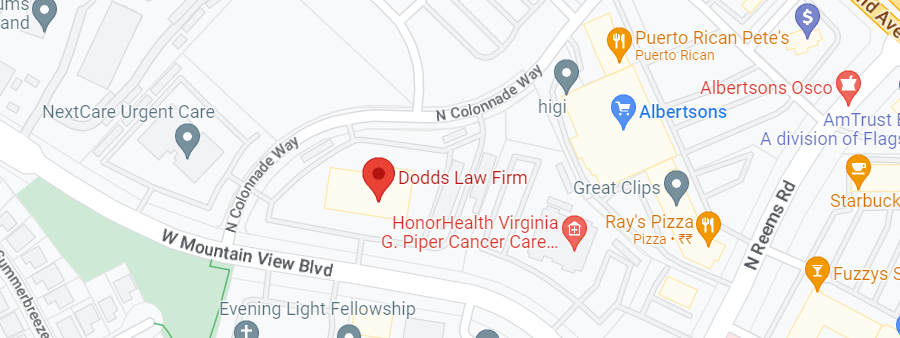A dissolution of marriage is often difficult for both spouses. Whether you are filing for legal separation or getting divorced, relevant state law must be strictly followed. A divorce petition will likely touch upon sensitive issues, such as division of property, child custody, and possible child and spousal support. Expert services from a legal representative are necessary, since divorce laws may vary from state to state.
Most of the time, it is relatively simpler to file for divorce if there are no children involved. Otherwise, in all of the decisions involved, the divorcing parties must take into careful consideration the legal rights and best interest of the child. If you are planning to get a divorce or if you have questions on the divorce procedure, Surprise Divorce Lawyers can give you legal advice.
Basics of the Divorce Process
The majority of divorce proceedings have a residency requirement that cannot be waived. Both parties filing the divorce petition have to reside in the state for at least 90 days. Additionally, if there are children involved, they must have resided in Arizona for at least six months before issues such as parenting time, visitation, and child support can be decided upon.
In Arizona, divorce cases can be uncontested or contested. Couples who file an uncontested divorce generally agree on how the proceeding shall take place. In contrast, a contested divorce is a legal process where unresolved issues are usually decided upon through court hearings. If applicable, an experienced Arizona divorce lawyer can further clarify the differences between these two.
How Do I Get Divorce Information and Records
Locating divorce records involves a specific legal procedure that must be carefully followed.
To access a divorce record, the requesting party must provide a government-issued proof of identification and contact details, with the latter being useful in case the court clerk has any questions. The details about the case, such as the names of the parties who got divorced, the case number, the exact date or year when the case was filed should also be provided, together with the specific documents being requested (decree, full record, certified, uncertified).
Depending on the county and the form of record that is being requested, the costs and methods of payment for obtaining divorce records vary. In general, however, the fee for uncertified copies of court records is $.50 per page, excluding any research fees.
If the request was made by mail, the clerk’s office will accept a check or money order payable to the Clerk of Court. If requested in-person, debit or credit cards are also accepted. Record requests made through the mail have a $7.00 shipping fee and are processed within 7 to 10 business days after the request was made. The actual delivery time, however, depends on the availability of mail service.
It might be necessary to obtain certified copies of the records, especially for legal purposes. If this is the case, the request must specifically state that the party needs to acquire a certified copy. A certified copy of a divorce record comes with a $30.00 charge.
To have access to and obtain divorce records in-person, one must be certain on which county courthouse processed the divorce filing. It is also necessary for the requesting party to have all the information related to the case that may be asked in the county clerk’s office. Most of the time, in-person requests are fulfilled within the same day.
How to Locate Divorce Records by Mail
Divorce records in Arizona can also be accessed by mail. This is done by mailing a request to the county clerk’s office, particularly in the courthouse where the divorce was heard and finalized. Together with the information mentioned above, one must furnish a photocopy of government-issued proof of identification and a check or money order of the determined amount. One may also be able to fill out and submit the online request form and have the records sent through the mail. It is important to keep in mind, however, that these forms may vary between counties. As such, these should be researched on a case-to-case basis.
Limitations and Things to Consider
The Arizona Judicial Branch provides an online portal for court records, which includes divorce records. However, the information provided is only from 177 out of the 184 courts in the state. In certain cases, it might be best to communicate with the Superior Court Clerk, either directly or by mail.
In the same way, while government public record search portals (and third-party public record websites) may provide court records search tools, record availability can widely vary. Additionally, some of the records may simply not be available through either source.
Seeking Legal Advice from Divorce Attorneys
Learning how to obtain vital records for a divorce in Arizona may not be as easy as it seems. The majority of divorce case records can be accessed through the Clerk of Superior Court, under the county where the divorce was filed and finalized. This is primarily because there is no state-wide maintenance of divorce records.
Several courts provide resources for obtaining the records and certificates online. However, it is often more advisable to access divorce records by mail or in-person through the county clerk. Certain divorce decrees, particularly those finalized before 1950, are maintained by the Arizona State Archives. While this office is not open to the public, it is possible to mail or phone in a request form to find out if they have access to the documents you need.
For any questions on how to locate records or divorce laws in general, contact Dodds Law Firm, PLC. Our trusted Arizona family law attorneys at Dodds Law can provide legal advice and assistance given your circumstances.

 CALL US NOW
CALL US NOW






